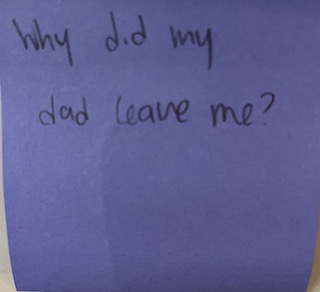
My heart goes out to you. I do not know the situation, but almost certainly the reasons are about him and not about you. If you want to talk, BC Counseling (bit.ly/BC-counseling) and Campus Ministry (bit.ly/bc-pastoral-counseling) are there for you.
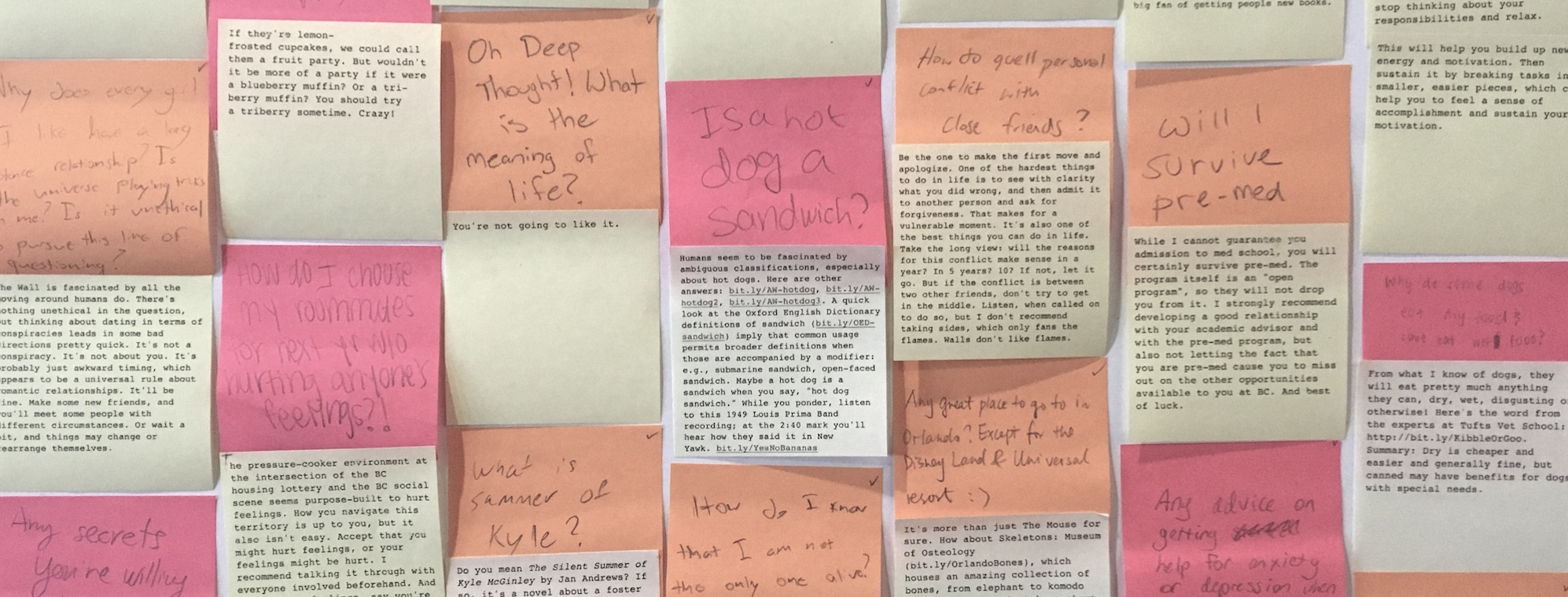
Answering questions at Boston College O’Neill Library
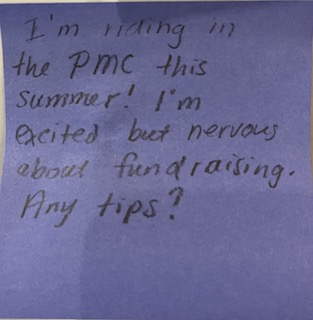
Fundraising can seem daunting, but keep in mind you are asking for money for a good cause. And you will be riding some serious miles to prove it is important to you. For detailed advice, try the latest edition of Fundraising for dummies (no offense meant!) online from the library: https://bc-primo.hosted.exlibrisgroup.com/permalink/f/l6ucgu/ALMA-BC51579070730001021
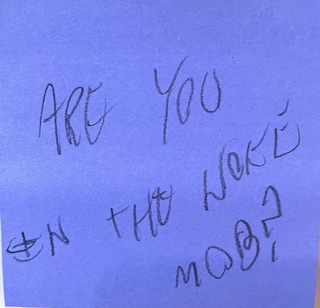
Yes. If by “woke” you mean treating everyone mindfully with respect, which by its nature necessitates examining one’s own behavior for biases & inequity, and supporting those who have endured injustices. “Mindfully” is the key word; people can criticize reflexively, such as when they groundlessly accuse someone of being racist in order to feel good about their own virtue or similarly use “woke mob” as a pejorative term.
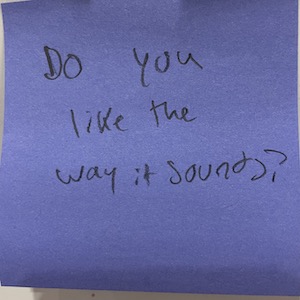
I like the way everything sounds. R. Murray Schafer, in The Soundscape: Our Sonic Environment and the Tuning of the World (O’Neill Library ML3805 .S3 1994) relates how he would customarily have everyone in his class meditate, and then afterwards, when relaxed, hum together a note of “prime unity” and they always converged on the same note, roughly B. He was invited to teach in Germany one year and had his class there do the same, but they converged on a different, lower note, closer to G. It turned out the note of prime unity was just a reflection of the electrical system’s frequency; Germany is 50 Hz, and the US 60 Hz. Students were unconsciously reproducing the note of the faint buzz of the fluorescent lights. Me, I especially love the clicks and hum of the automatic lights turning on in the stacks, because it means someone’s in hot pursuit of knowledge.

I’m in general in favor of second chances, but in this case it’s much more complicated. You have your finger on the issue, trust. You can’t have a lasting relationship without it. Our collection is a little more oriented toward helping future therapists learn how to help couples with this, but it might help you to look at a few things from this list at Boston Public Library: https://bit.ly/bc-infidelity. Because you’re at BC you’re eligible for a library card there, but you can also use our interlibrary loan service to request copies of what you want. My condolences, that is the hardest thing. And good luck to you as well.

That probably depends a lot on your point of view and on what part of the arrangement you’re looking at. The US, UK, and Australia are old allies concerned about what they perceive as a growing Chinese threat. China for military/political reasons and France for commercial ones are much less happy about the deal.